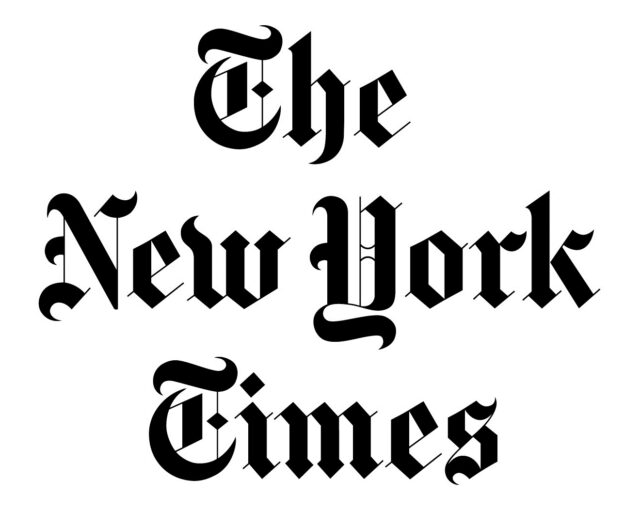
The New York Times
June 3, 2023
LETTER TO THE EDITOR
I have studied “the problem of Kosovo” for many years. I must recognize that your two recent articles “Time of Rising Tensions in Kosovo and Serbia” (May 31,2023) and the second article “Djakovic Launched Himself Into Another Fiery Controversy” (June 1,2023) are balanced, informative, and factual. The authors deserve our gratitude!
The Western Balkan’s States, without exception, include one or more ethnic minorities who have been oppressed, and have revolted. The most important case is the Republic of Kosovo, an independent state since 17 February 2008, recognized by more than 100 nations, including the United States, the United Kingdom and France. Conspicuously absent are the Russian Federation and the Republic of China, two major powers and members of the UN Security Council.
The reason for this dichotomy – it’s a general belief – is the presence of large minorities in both these two countries. Their diplomacies have opposed all attempts made by the Republic of Kosovo to integrate itself fully in the society of nations, fearing that an independent Republic of Kosovo will be seen as a “model” by the subjugated minorities to strive for independence, or request to join their brothers and sisters of the neighboring state, part of which they have always claimed to be.
The Republic of Kosovo was freed from the Serbian yoke after a struggle of many decades, especially since the 1878 Treaty of Berlin, when the Albanian population was still occupied by the Turks. Kosovo without a Great Power friend, and Serbia a bridgehead of Imperialist Russia in her efforts to reach the warm waters of the Mediterranean, was no match to fight and win. The unjust geography in the Western Balkans took the present shape and kept expanding by the 1913 London Conference and the 1919-20 Peace Treaties in Paris, especially in favor of Serbia, an ally of the victorious states.
A small State of Albania was formed in 1912, but the trauma of dismemberment never ended until the destruction of the second Yugoslavia, brought about by an expansionist Serbia. In Spring 1999, a NATO coalition military power expelled Serbia out of Kosovo, and sponsored the creation of the Republic of Kosovo free, independent, democratic, united and European state.
It’s hoped that a more friendly atmosphere will reach the Western Balkans states too, and that the two neighbors, Albanians and Serbs, will learn to live in peace and constructive cooperation with each other
Sami Repishti, Ph.D.
co-author of “Studies on Kosova”C.U.P 1984
Ridgefield, CT